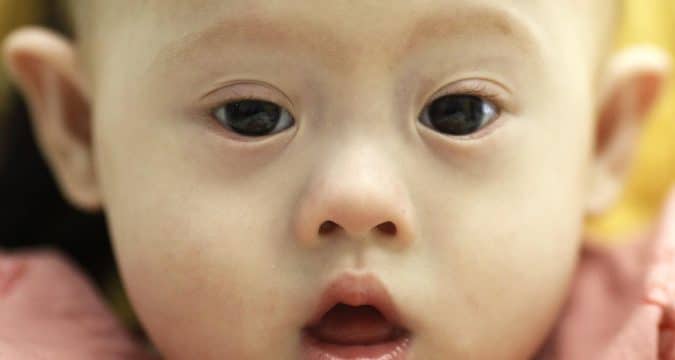
MANCHESTER (CNS): Medical orders against attempting to resuscitate patients with learning disabilities during the latest Covid-19 lockdown in the United Kingdom (UK) are “wholly unacceptable and immoral,” the bishops of England and Wales said.
Bishop Richard Moth of Arundel and Brighton, issued a statement on February 16 denouncing the practice of imposing Do Not Attempt Cardiopulmonary Resuscitation (DNACPR) orders on such patients during the second wave of the Covid-19 pandemic.
The government said it does not support the practice and has notified all health care providers to desist, threatening further action to halt the practice if necessary.
‘In a time when we are being given so much hope by the efficient rollout of the vaccination programme, it is shocking to hear that people with learning disabilities are being made the victims of such discrimination’
Bishop Richard Moth
“In a time when we are being given so much hope by the efficient rollout of the vaccination programme, it is shocking to hear that people with learning disabilities are being made the victims of such discrimination,” Bishop Moth, chairperson of the bishops’ Department for Social Justice, said.
Their caregivers “have shown deep love and compassion during the pandemic to ensure that they are as safe as possible,” he said, adding, “It is wholly unacceptable and immoral to suggest that the challenges which some people with learning disabilities face with communicating symptoms should make them candidates for a DNACPR order.”
The orders were issued locally by National Health Service trusts, which run public hospitals.
Bishop Moth said, “The issuing of such orders in a blanket fashion ignores the unique gift of each person, instead treating people with learning disabilities as though they were all the same.”
The bishop said, “There should be no discrimination of this kind in our health service.”
Bishop Moth repeated a demand made by the bishops in April 2020 that “access to treatment and decisions about the care of the sick … be always focused on the specific needs of the individual.”
It said some members were complaining that the orders were being issued for patients simply because they had learning disabilities when normally they are made only when a patient is too frail to benefit from cardiopulmonary resuscitation.
Mencap, a leading UK charity for people with learning disabilities, raised concerns about the orders in a February 13 article in The Guardian newspaper.
It said some members were complaining that the orders were being issued for patients simply because they had learning disabilities when normally they are made only when a patient is too frail to benefit from cardiopulmonary resuscitation.
The charity also says that people with learning disabilities, such as those with Down syndrome, are being overlooked in the distribution of vaccines against the Covid-19 coronavirus (SARS-CoV-2).
Britain’s Care Quality Commission, which oversees standards in health care, announced in December that inappropriate DNACPR notices had caused potentially avoidable deaths during the pandemic of 2020. It is due to publish a report on the practice within weeks.
A February 17 statement from Department of Health and Social Care said: “It is completely unacceptable for ‘do not attempt CPR’ decisions to be applied in a blanket fashion to any group of people. This has never been policy and we have taken action to prevent this from happening.”
It said, “We have asked the CQC to undertake a review of notices issued during the pandemic,” the statement said., adding, “This review has started and will report later this year. As this proceeds, we will continue to work across the health and care system to address the issue.”








